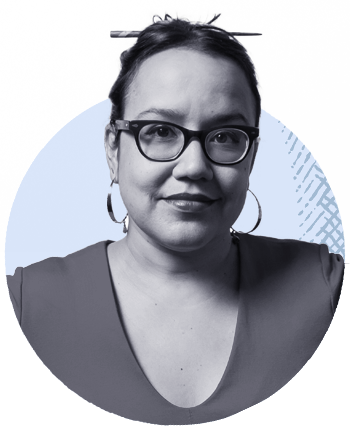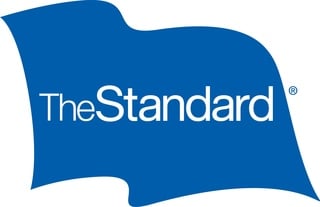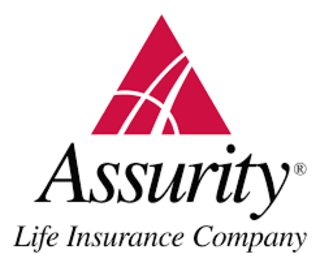Best Disability Insurance
Auto, homeowners and life insurance might come to mind as the trifecta of essential coverage everyone should have. However, it's just as important to protect your way of life with disability insurance. This coverage can replace your income if you suffer a severe illness or injury that prevents you from working.
We researched and reviewed the best disability insurance companies. Read on to learn about our top choices and decide which company is the best fit for you.
Our Top Picks for Best Disability Insurance
Note: The following companies are listed in alphabetical order.
- Assurity - Best for High-Risk Occupations
- Breeze - Best for Affordable Insurance Premiums
- Guardian - Best for Long-Term Disability Coverage
- Mutual of Omaha - Best for Short Waiting Period
- State Farm - Best for Short-Term Disability Coverage
Best Disability Insurance Reviews
- Covers high-risk occupations that other providers do not
- Zero-day waiting period available, depending on policy
- Coverage is renewable to age 75 if employed full-time
- Offers quotes online
- Must purchase coverage through an agent
- Limited availability for Florida and Massachusetts residents
Why we chose it: Assurity is known for providing coverage to workers in dangerous occupations. While many other providers don’t extend policies to construction workers, machinery operators and electrical technicians, to name a few high-risk professions, Assurity does.
Read our review
What we like
Assurity offers flexible long-term disability insurance with guaranteed renewability until retirement age. Coverage includes up to $20,000 monthly after waiting periods ranging from 30 to 365 days. Short-term policies via employers feature waiting periods of zero to 30 days.
Assurity provides online estimates for convenience and has received a strong A- rating from AM Best.
What we don't like
To purchase coverage, you must speak with an agent, and the underwriting process isn't automated, potentially leading to delays. Certain coverage options are unavailable in Florida and Massachusetts, limiting choices for residents of these states.
- Get quotes and purchase a policy online
- Quick automated underwriting
- Long-term coverage starts at $9 per month
- Disability insurance available for self-employed workers
- Doesn't have the history and reputation of other providers
- Limited availability for New York residents
Why we chose it: Breeze offers a budget-friendly long-term disability insurance plan with premiums starting at $9 per month.
Read our review
What we like
Breeze offers affordable long-term disability coverage starting at $9 per month, with flexible benefit periods of up to retirement age and varying waiting periods. Short-term disability plans, on the other hand, can replace up to 60% of income and are renewable up to age 75.
Freelancers and self-employed workers will find excellent coverage, with additional riders available — including guaranteed insurability, residual disability benefits, automatic benefit increase and supplemental disability insurance benefits. The company also provides online estimates and a quick, automated underwriting process that often waives medical exams. Lastly, Breeze has a strong financial strength rating of A- from AM Best.
What we don't like
Breeze doesn't have the long history of other providers, which might concern some customers. Some coverage options are not available in New York state, limiting accessibility. Additionally, those seeking more comprehensive coverage may need to pay extra.
- Offers quotes online
- Many insurance riders available
- No medical exam required for supplemental coverage
- Medical exam required for most coverage options
- Must purchase coverage through an agent
- Doesn't disclose short-term disability waiting periods
Why we chose it: Guardian Life is a reputable disability, accident and critical illness insurance provider that sells own-occupation coverage as well as many insurance riders.
Read our review
What we like
Guardian offers both employer and self-employed short- and long-term disability insurance, paying up to 70% of your monthly income if you can't work. You can enhance your policy with a supplemental disability add-on. Long-term coverage lasts from two to 20 years or until retirement age, with waiting periods between 90 to 180 days. Short-term insurance can last up to 26 weeks.
Guardian's own-occupation disability policies pay out if you cannot perform your current job duties, even if you can work in another role. The policies are customizable with optional riders, including cost of living adjustments, partial disability coverage, and catastrophic disability benefits.
What we don't like
Guardian doesn't disclose waiting periods for its short-term disability coverage. Additionally, while it sells insurance in every state, some areas have limited coverage. Lastly, the purchasing process requires contacting a Guardian agent to buy a plan, which can be inconvenient for those who prefer a fully online experience.
- Zero-day waiting periods available
- Many insurance riders available
- Coverage can last up to age 70
- Doesn't offer quotes online
- Must purchase coverage through an agent
Why we chose it: While many disability insurance providers require waiting periods of 30 days or more, Mutual of Omaha offers zero-day waiting periods in certain situations.
Read our review
What we like
Mutual of Omaha offers flexible long-term disability insurance coverage lasting until age 70. Benefit commencement options range from 30 to 730 days, with monthly payouts varying based on income, from $300 to $20,000.
Its short-term plans cover up to one year with a zero-day waiting period for accidental injuries, and high earners can receive up to $12,000 per month. The policies can also be customized through various riders.
What we don't like
While Mutual of Omaha's long-term disability insurance can cover policyholders through age 70, policies may be canceled after age 67 if they stop working full-time. And, unlike other insurers, it doesn't offer or sell policies online.
- Short-term coverage available for up to three years
- Make payments monthly or annually
- Easy application process
- Must purchase coverage through an agent
- Waiting periods range from 30 to 90 days
- Not available in every state
Why we chose it: State Farm offers affordable short-term disability insurance that can last up to three years and pay a maximum benefit of $3,000.
Read our review
What we like
State Farm, one of the largest insurers in the U.S., offers individual short- and long-term disability insurance. Long-term coverage can provide up to $20,000 monthly with benefit periods ranging from five to 10 years or until retirement at age (65 or 67). Short-term disability insurance can last one or three years, with benefit payments ranging from $300 to $3,000. Waiting periods for short-term plans are 30, 60 or 90 days
State Farm also offers individual credit disability insurance to protect your credit score and help pay off debts if you're unable to work. After signing up, you can manage your account and pay bills through State Farm’s online platform. The company boasts the highest AM Best rating of A++.
What we don't like
To get a quote and purchase a plan, applicants must speak to a State Farm agent, which can be inconvenient for those who prefer an online process. Additionally, State Farm is not available in Massachusetts, New Jersey or Rhode Island.
Other disability insurance we considered
Here are some other disability insurance providers that we considered.
Northwestern
- Strong financial stability
- Pays dividends
- Many insurance riders available
- Doesn't offer online quotes
- Expensive premiums
- Must purchase coverage through an agent
Northwestern Mutual offers unique disability income policies that pay dividends, helping to lower premiums. Its short- and long-term disability insurance can cover up to 100% of a policyholder's salary. Instead of riders, extra coverage can be purchased at specific ages. The company boasts the highest financial strength ratings from AM Best (A++). However, its high premiums prevented it from being the top choice in our categories.
The Standard
- Offers family care, rehabilitation and survivor benefits
- Short- and long-term coverage available
- Long waiting periods
- Individual disability coverage not available in every state
The Standard offers short- and long-term disability insurance, with short-term benefits lasting up to one year and long-term benefits ranging from one year to retirement age. Short-term policies have waiting periods from zero to seven days, while long-term policies range from 60 to 360 days. Unique options include a family care benefit for caring for an injured or ill family member, as well as non-cancelable coverage and benefits increase riders. The Standard holds an A rating from AM Best.
Principal Financial Group
- No medical exam required
- Options for part-time workers
- Agent required to purchase coverage
- Getting approved for coverage takes longer than with competitors
Principal Financial Group offers up to $20,000 in monthly benefits with full underwriting (including a medical exam) or up to $6,000 with simplified underwriting. Long-term coverage extends for two or five years or until retirement age, with waiting periods from eight to 90 days. Additionally, its individual disability insurance is available to those working as little as 20 hours per week. Principal Financial Group holds an A+ financial strength rating from AM Best. Online quotes are available, but applying requires speaking with an agent.
Disability Insurance Guide
Before purchasing disability insurance, it's important to understand the ins and outs of these policies and how they differ from other insurance products, like life insurance. This guide covers what disability insurance is, how it works and how to choose the best provider for you.
What is disability insurance?
Disability insurance gives you a percentage of your monthly income when you cannot work due to illness or injury. You can apply for this type of insurance plan through your employer, the United States Social Security Administration or a private disability insurance provider.
Depending on your policy, disability insurance can provide benefit payments and income protection for situations such as:
- Heart failure
- Fractures
- Pregnancies
- Arthritis
- Scoliosis
- Carpal tunnel syndrome
- Mental health issues
- Stroke
- Dementia
- Polio
There are two types of disability insurance coverage: short- and long-term. Short-term disability insurance covers temporary disabilities, and policies rarely provide payment benefits for more than one year. Long-term disability insurance policies, on the other hand, stay in effect until you recover from your disability, retire or coverage runs out.
While their names are similar, long-term disability insurance is not the same as long-term care insurance, which offers coverage for extended care at home or a facility. Long-term care insurance covers chronic health conditions or impairments that prevent you from performing at least two out of six daily living activities.
How does disability insurance work?
Disability insurance policies work differently depending on your insurer and policy. Your monthly premiums will depend on your health, income, length of coverage and more.
- Group disability insurance: Many employers include disability income insurance in their employee benefits packages. Buying a group disability insurance policy through your employer can be more affordable but give you fewer options for policy customization. Also, bear in mind that you’ll lose your coverage if you leave your company.
- Government-sponsored disability insurance: To receive Social Security Disability Insurance (SSDI), you must prove that you cannot work because of a severe illness or injury that will impact your ability to work for at least one year.
- Individual disability insurance: Purchasing individual disability insurance through a private insurer can offer more flexible policy options and benefits. Individual disability insurance is an excellent option for self-employed professionals, but those who qualify for coverage through their employer may still want to consider this type of policy.
The 5 elements of a disability insurance policy
A disability insurance policy has five main components, regardless of whether it's short- or long-term. These are the monthly premium, benefit payment, benefit period, waiting period and provider’s definition of a disability.
1. Monthly premium
Your insurance premium is the monthly amount you or your employer pay the insurance company for coverage. The cost of premiums varies based on many factors, including:
- Age
- Gender
- Health
- Occupation
- Income
- Type of coverage
- Benefit payment amount
- Insurance riders
Usually, the more dangerous your occupation, the higher the monthly premium you'll need to pay for disability insurance coverage.
2. Benefit payment
Your benefit payment is the amount you receive from your disability insurance provider each month that you cannot work. Your benefit amount depends on your coverage but will often be between 60% and 80% of your monthly income.
If you receive coverage through an employer, your employer will likely make the premium payments using pre-tax dollars. In this case, your benefit payments will be taxed. If you have an individual policy and pay your premium with after-tax dollars, you won't have to pay additional taxes on your benefit payments.
3. Benefit period
The benefit period is the length of time you’ll receive benefit payments from your insurance provider. For short-term disability insurance policies, the benefit period is usually under one year. A long-term policy’s benefit period can range from two years to the total time it takes you to recover from your disability, or until you retire at a set age.
4. Waiting period
The waiting period, also called the elimination period, is the time between when your provider deems you eligible for benefits and when you actually start to receive benefit payments. Waiting periods vary by insurance company but are usually 30 days or less for short-term disability policies and 90 days or more for long-term policies.
5. Definition of disability
When deciding on a disability insurance provider, it's essential to know how the company defines "disability." The criteria for determining whether an individual is eligible to receive benefit payments due to illness or injury vary depending on the insurance policy and the provider offering it.
- Any occupation policies: With an any-occupation disability insurance policy, if you are hurt or sick and cannot perform the tasks of your regular job but can still work a different one, you won’t be eligible for benefit payments, even if your new job pays less than what you earned before.
- Own occupation policies: Own-occupation policies will pay benefits if you cannot perform the duties of your current occupation due to sickness or injury, even if you could work in a different role or field.
- Partial disability insurance: Some carriers also cover partial disabilities if you aren’t completely disabled but still can’t perform your job. Partial disability insurance usually provides partial benefit payments.
How to choose a disability insurance provider
Finding the right insurance provider for your situation will take some work. This article can help you get started, but you should do your own research into the companies and policies available.
Before buying a policy, make sure you understand the coverage and financial support it offers if you can't work. Since disability insurance policies vary, review the five key elements of a policy mentioned above and understand how additional riders impact your coverage.
Remember to check the cancellation options on your policy
There are two common cancelation options for disability insurance.
- Non-cancellable policies: With this option, your insurance provider can’t cancel your policy for any reason other than a policy lapse (failure to pay your monthly premiums), regardless of the injury or illness you experience.
- Guaranteed renewable policies: These ensure that you can renew your policy without any changes, but they don’t necessarily guarantee that your premium will remain the same.
There are also non-cancellable, guaranteed renewable policies, where your provider cannot modify the policy provisions, increase your premiums or cancel your policy, assuming you keep up with premium payments.
Disability Insurance FAQ
How much does disability insurance cost?
Disability insurance typically costs 1% to 3% of your annual income. The price varies based on the type of policy you select (whether short- or long-term), the coverage amount, your occupation, age and gender, and any insurance riders you select.
Your health and habits can also affect the cost. For example, smokers pay higher premiums due to their increased risk of developing smoking-related illnesses.
What does disability insurance not cover?
How do long-term disability and short-term disability insurance differ?
The main difference between short- and long-term disability insurance is the length of coverage. Short-term disability insurance covers temporary injuries or illnesses for a few weeks to a year. Long-term disability insurance covers extended periods, from several years up to retirement age. Long-term premiums cost more due to extended benefit periods.
Is long-term care insurance the same as long-term disability insurance?
Long-term care insurance helps cover the costs of extended care during old age or after a serious illness. It can help pay for in-home care or residential care at an assisted living facility or nursing home, for instance. On the other hand, long-term disability insurance offers income replacement when an illness or injury causes you to miss work.
How We Chose the Best Disability Insurance
To determine the best disability insurance providers, we weighed factors including:
- Application requirements
- Coverage offerings
- Insurance riders
- Maximum benefit payouts
- Benefit and waiting periods
- Available discounts
- Financial stability
- Customer service reputation
We also looked at third-party review sites like AM Best and the Better Business Bureau to consider customer reviews and complaints.
Summary of Money’s Best Disability Insurance
- Assurity - Best for High-Risk Occupations
- Breeze - Best for Affordable Insurance Premiums
- Guardian - Best for Long-Term Disability Coverage
- Mutual of Omaha - Best for Short Waiting Period
- State Farm - Best for Short-Term Disability Coverage











